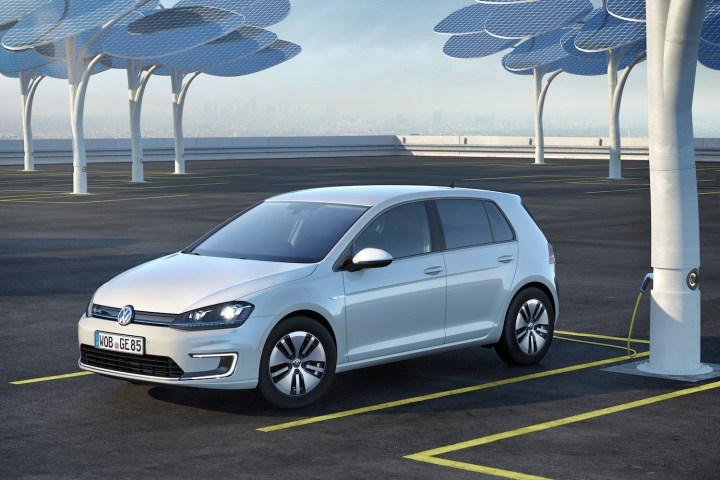
Volkswagen chairman Hebert Diess told German magazine Wirtschafts Woche the Golf-sized car will debut as a concept model at next month’s Paris Motor Show. Deiss said the production model will be similar to the concept.
Following the initial announcement, Matthias Müller, CEO of the full Volkswagen Group, confirmed the relative size and range to Autocar. Müller also spoke about charging time and pricing but did not confirm the launch year, sticking to an earlier mention of 2025 as a target date.
Müller characterized the plans for “the Volkswagen for the digital age” as a challenge to the group’s top engineers. Their goal: “to create an electric car that can be as iconic as the Golf and offer a 500km (310-mile) range while having a charge time of 15 minutes and costing less than a conventionally engined car.”
The promise of pricing competitive with petroleum-powered versions of similar cars in the VW lineup will likely need to be met by component cost control and production volume. Diess stated that VW will likely need to either build its own batteries or buy them from German firms to ensure supply and keep costs down.
Driving range per charge, charging time needed, and the availability of suitable chargers are EV technology issues faced by all current and potential electric vehicle manufacturers. Driving range is a factor of battery power, measured in kilowatt hour (kWh). The more powerful the battery, the greater the cost and the longer it takes to charge.
Engadget reported that charging a battery sufficient for 300 miles of driving in 15-minutes would require 800-volt charging technology. As a comparison point, Tesla’s Model S gains 58 miles of range per hour of 240-volt charging. So if VW is going to deliver on the 300-mile range with 15 minutes of charging promise, charging technology development will need to make a big leap pretty fast. And then the chargers will have to be widely available if owners are going to use the EVs for longer trips.
With autonomous vehicle and electric car development both promising huge advances in the next 5 to 10 years, all major car companies will see more changes than in any previous period. Volkswagen alone has said its line of “New Urban Vehicles” will include a coupe, a minibus, a small delivery van, a “city-ready” SUV, and a luxury sedan.




